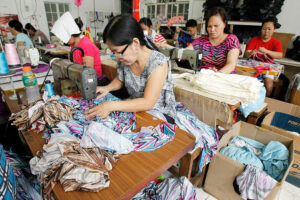THE Commission on Human Rights (CHR) and the Department of Labor and Employment (DoLE) on Thursday rolled out an economic assistance program designed for workers impacted by labor rights violations.
The new Labor, Intervention, Financial, and Economic (LIFE) Assistance Program, launched as the country celebrates Labor Day, offers support to both workers and their families.
This includes livelihood aids, scholarships, internships, skills training under the Technical Education and Skills Development Authority, and referrals to relevant government services, the CHR said in a statement.
“CHR and DoLE affirm their joint commitment to ensure that Filipino workers and their families can live with dignity — free from fear and empowered to claim their rights,” it added.
The initiative specifically targets individuals who have faced threats, violence, or retaliation linked to labor organizing and rights advocacy. It is designed to meet their immediate economic needs and provide long-term recovery support.
The LIFE Assistance Program reflects broader government efforts to address international labor rights concerns and improve worker protection.
It builds on the Memorandum of Agreement and Data Sharing Agreement signed between CHR and DoLE in October 2023, which forms part of the Philippines’ response to observations made by the International Labour Organization’s High-Level Tripartite Mission.
Under the program, CHR is expected to submit a nationwide list of investigated labor-related cases for DoLE’s review.
Eligible beneficiaries will be identified based on this list and formally recognized during the ceremonial awarding on Labor Day.
The joint program also aligned with Executive Order No. 23, signed in 2023, which reinforces the state’s obligation to protect workers’ rights to organize. It also mandates coordinated responses among government agencies.
Labor rights protection has been identified as a key priority of the CHR’s sixth Commission en banc. It reiterated that economic security is integral to the full realization of human rights and expressed support for more responsive, rights-based interventions across government. — Chloe Mari A. Hufana

